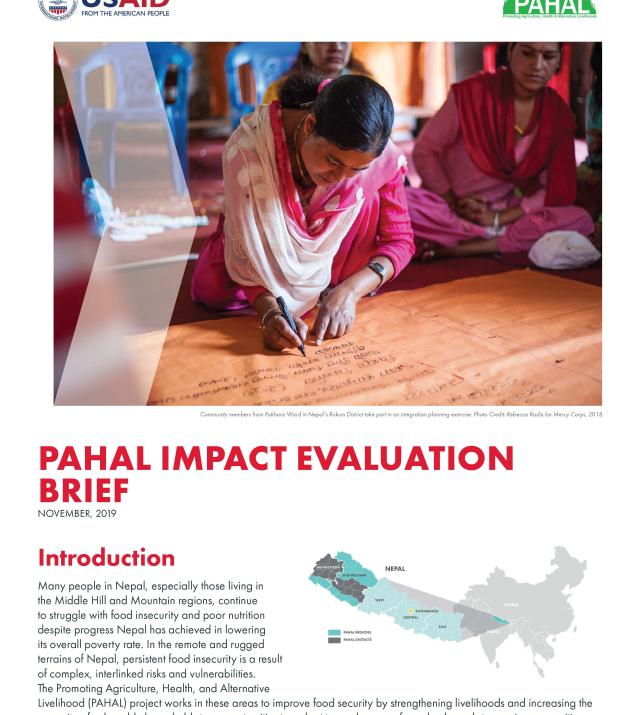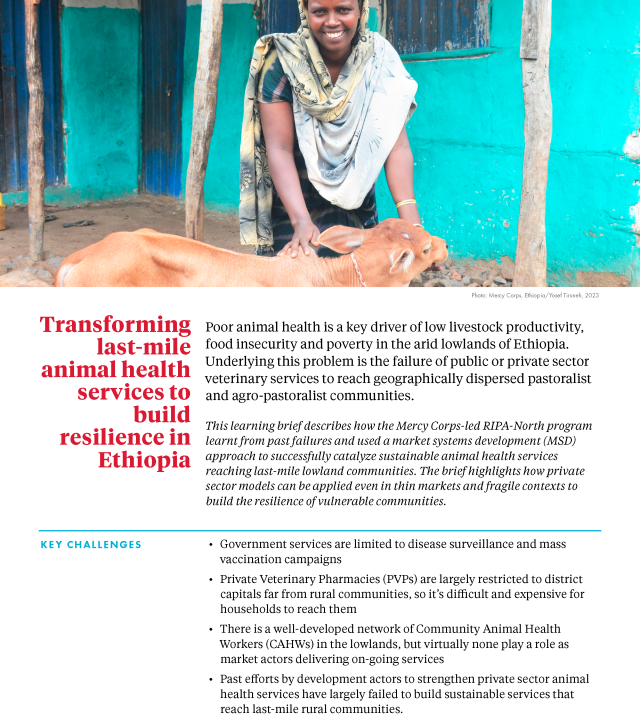
Social Capital and Resilience: Lessons from Nepal

Sabal is a five-year development food security activity implemented by Save the Children and its partners in the rural Central and Eastern Midhills regions of Nepal, both of which were severely affected by the 2015 earthquake. By designing and utilizing an inclusive group approach to activity implementation, Sabal aimed to strengthen social capital and resilience among chronically vulnerable populations with limited livelihood options, inadequate access to services, and barriers to cooperation among distinct castes. While the baseline study, routine program monitoring and annual beneficiary-based surveys each provided data on changes in resilience capacities, until 2019, Sabal had insufficient insight into whether and how activities had influenced social capital and strengthened resilience among participating communities. To address this critical knowledge gap, Sabal integrated additional quantitative and qualitative components focusing on social capital into its 2019 Annual Monitoring Study (AMS). The summary of results presented in this brief highlight both the successes and challenges Sabal experienced in strengthening social capital in Nepal and provide valuable lessons for resilience programming in other contexts.

